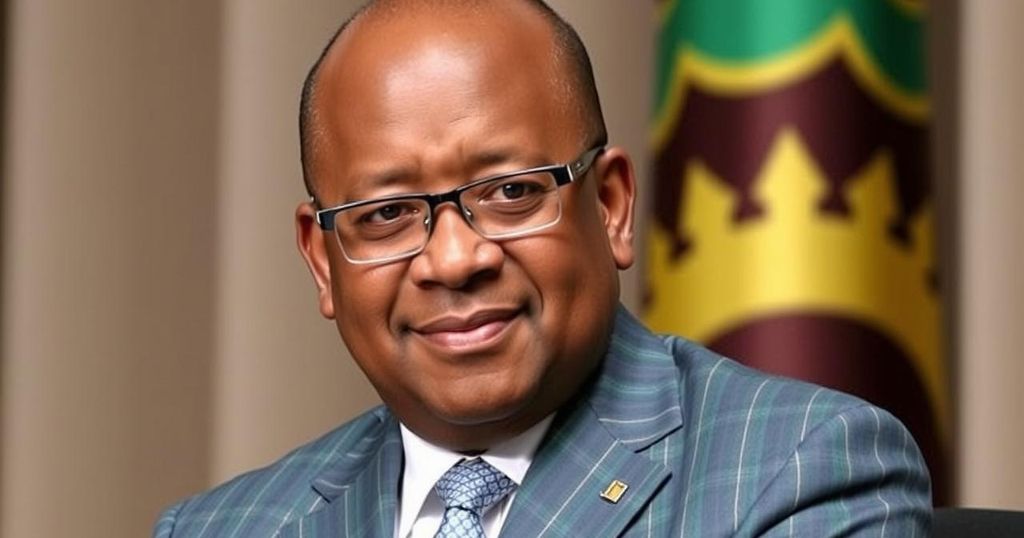Former President John Mahama has been declared the winner of the 2024 Ghana presidential election, representing the National Democratic Congress. He received 56.55% of the valid votes, defeating Mahamudu Bawumia from the ruling New Patriotic Party. The election also saw the historic election of Jane Naana Opoku-Agyemang as the first female Vice President of Ghana, marking a significant change in the country’s leadership.
The Ghana Electoral Commission officially announced John Mahama as the president-elect following the December 7, 2024 presidential election. He represented the National Democratic Congress (NDC) and secured a significant victory over his closest rival, Mahamudu Bawumia, the outgoing Vice President from the New Patriotic Party (NPP). Mahama garnered 6,328,397 votes, constituting 56.55% of the total valid votes, while Bawumia received 4,657,304 votes, or 41.61%. Jean Mensa, the Chairperson of the Electoral Commission, indicated that the results from nine constituencies were still pending, but these would not alter the overall outcome. Voter turnout exceeded 18 million across 40,000 polling stations, and Mahama’s victory signals the conclusion of President Nana Akufo Addo’s term, which will officially end on January 7, 2025. In a gracious concession, Bawumia acknowledged Mahama’s victory shortly after attending a press briefing during which the NDC claimed an early lead in the election. This marks Mahama’s return to the presidential office, having previously served as the country’s leader from 2012 to 2016.
Moreover, Ghanaian history has been made as Professor Jane Naana Opoku-Agyemang has become the first female Vice President-elect in the nation’s political landscape. Opoku-Agyemang, who has an extensive background in education and previous political service, will serve alongside Mahama for the forthcoming term.
The article details the recent presidential election in Ghana that culminated in the election of John Mahama as the new president. Mahama’s victory is notable, not only for its immediate political implications but also for his historical significance, having previously held the presidency from 2012 to 2016. The election results reflect the political landscape of Ghana, showcasing a democratic process where the opposition party, the National Democratic Congress (NDC), regained power after the previous administration’s four-year term under the New Patriotic Party (NPP). The inclusion of Jane Naana Opoku-Agyemang as the first female Vice President in Ghana adds another layer of significance to this election yet further diversifies the political representation for women in Ghanaian leadership roles.
In conclusion, the recent announcement by the Ghana Electoral Commission declaring John Mahama the president-elect marks a pivotal moment in Ghana’s political history. His victory not only restores him to the presidency but also signifies a shift in political power within the country. Alongside him, Jane Naana Opoku-Agyemang’s election as the first female Vice President illustrates progress toward inclusivity in Ghanaian politics. The upcoming administration will take the reins following an election marked by significant voter engagement and the peaceful transition of power.
Original Source: www.bbc.com






